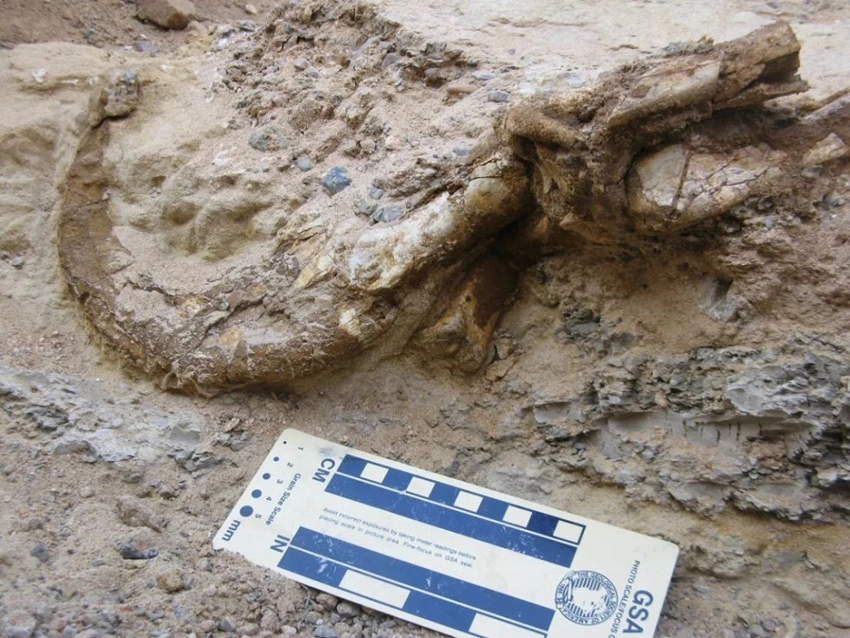Fossil remains of a two-toed dinosaur, a species different from the traditional three-clawed one. Were found in Mongolia by Japanese scientists, the journal Science published on Thursday.
Dubbed Duonychus tsogtbaatari or “two claws.” The discovery surprised scientists by breaking the three-toed pattern common in its family.
The fossil, unearthed during construction work. Reveals a creature three meters long and weighing about 260 kilograms that lived about 90 million years ago.
The most impressive: its 30-centimeter claws. Which even retained traces of keratin. The same material as our nails. This keratin sheath added more than 40 percent to the length of the claw. Making them especially formidable, said Yoshitsugu Kobayashi. A paleontologist at the Hokkaido University Museum in Japan and leader of the study.
The reduction of fingers in Duonychus tsogtbaatari represented an evolutionary adaptation. That possibly allowed this vegetarian dinosaur to feed more efficiently. Duonychus preferred the vegetarian diet.
It belonged to the terizinosaruios, dinosaurs characterized by their rotund torso, long neck, small head, bipedal posture and feathers on the body.
It used its formidable claws mainly to attract branches. And feed on leaves, although researchers speculate that it could also have served for defense or even for recognition among its species.
This strange dinosaur shared its their semi-arid habitat with other armored. Horned dinosaurs and smaller ancestors of Tyrannosaurus, they explained. Duonychus is an example of digital reduction. Losing fingers or toes through evolution.
The first terrestrial vertebrates had eight digits. The earliest dinosaurs had hands with five fingers, just like people. But many dinosaur lineages experienced digital shrinkage over time.
With information from Prensa Latina / Translated by Radio Angulo
- Boiler Maintenance Ensures Recovery in Holguin - 20 de February de 2026
- Russian Parliament Calls Trump’s Energy Blockade of Cuba a Genocide - 20 de February de 2026
- Olga’s Legacy: When Art Becomes Homeland - 20 de February de 2026

